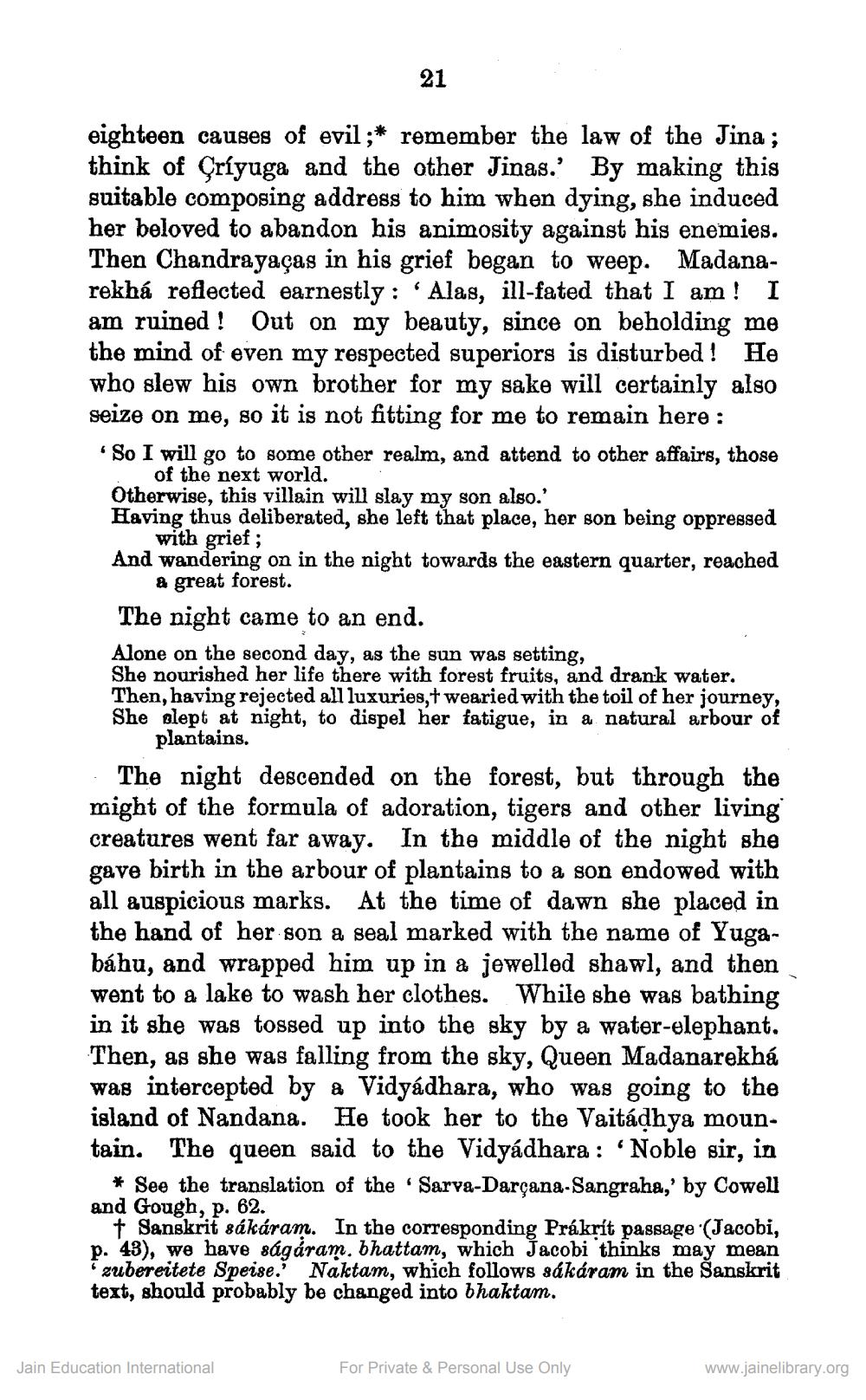________________
21
eighteen causes of evil;* remember the law of the Jina; think of Críyuga and the other Jinas.' By making this suitable composing address to him when dying, she induced her beloved to abandon his animosity against his enemies. Then Chandrayaças in his grief began to weep. Madanarekhá reflected earnestly: 'Alas, ill-fated that I am! I am ruined! Out on my beauty, since on beholding me the mind of even my respected superiors is disturbed! He who slew his own brother for my sake will certainly also seize on me, so it is not fitting for me to remain here:
'So I will go to some other realm, and attend to other affairs, those of the next world.
Otherwise, this villain will slay my son also.'
Having thus deliberated, she left that place, her son being oppressed
with grief;
And wandering on in the night towards the eastern quarter, reached a great forest.
The night came to an end.
Alone on the second day, as the sun was setting,
She nourished her life there with forest fruits, and drank water. Then, having rejected all luxuries,t wearied with the toil of her journey, She slept at night, to dispel her fatigue, in a natural arbour of plantains.
The night descended on the forest, but through the might of the formula of adoration, tigers and other living creatures went far away. In the middle of the night she gave birth in the arbour of plantains to a son endowed with all auspicious marks. At the time of dawn she placed in the hand of her son a seal marked with the name of Yugabáhu, and wrapped him up in a jewelled shawl, and then went to a lake to wash her clothes. While she was bathing in it she was tossed up into the sky by a water-elephant. Then, as she was falling from the sky, Queen Madanarekhá was intercepted by a Vidyádhara, who was going to the island of Nandana. He took her to the Vaitáḍhya mountain. The queen said to the Vidyadhara: 'Noble sir, in
* See the translation of the Sarva-Darçana-Sangraha,' by Cowell and Gough, p. 62.
† Sanskrit sákáram. In the corresponding Prákrít passage (Jacobi, p. 48), we have ságáram. bhattam, which Jacobi thinks may mean zubereitete Speise. Naktam, which follows sákáram in the Sanskrit text, should probably be changed into bhaktam.
Jain Education International
For Private & Personal Use Only
www.jainelibrary.org




